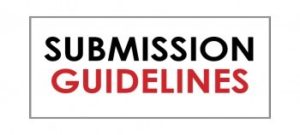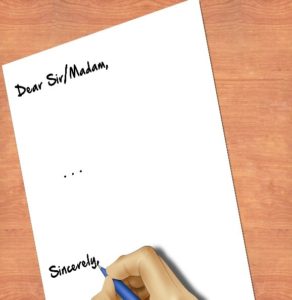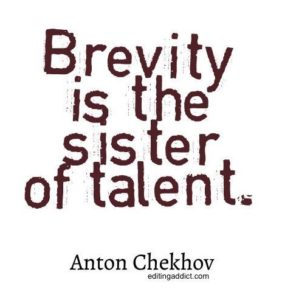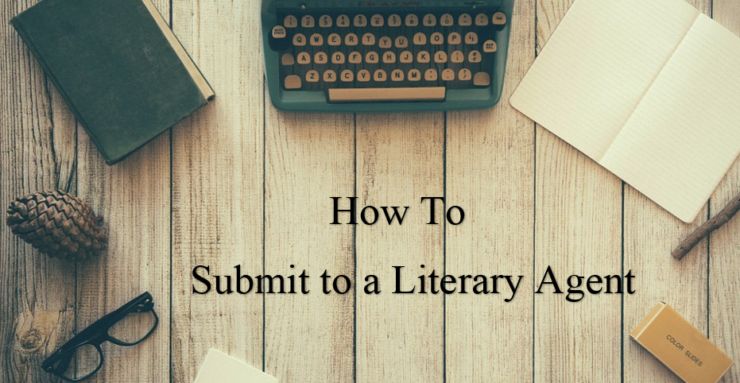How to Submit to a Literary Agent
For many people, it’s their goal to write a novel one day. Everyone has a story to tell, and with lots of practice and quality instruction, it can be done well. But what does an aspiring writer do once the hardest part is finished, and the words are on the page? How do you get your writing off your computer screen and into the hands of adoring readers?
The answer for most writers is a literary agent. Literary agents make their money off selling your books to publishers, and they don’t get paid until you get paid. The publisher pays them, not you. As agents, they have worked hard to build a network of editors at publishing houses where they can submit your writing for publication, many of which only accept writing from agented authors. The long and short of it is that a literary agent can open doors for you that would otherwise remain closed. But how to you land one of these busy-bee industry professionals?
You’ve come to the right (write!) place. Here are five steps to submitting to a literary agent.

Step One – Prep
Write Down, Ask, and Answer the Proper Prep Questions
So, you finished your novel! What now? If you want to get it published, you’ll need an agent, and to get an agent, the first step is knowing your finished work in and out. To do this, you’ll have to ask yourself:
- What genre is your novel?
- What is the word count? Does it fit the genre standard? (Manuscripts over 100,000 words are an automatic reject for most literary agencies).
- What is the age group? Does your word count fit the age group standard?
- Can you sum up your whole story in three to four—or even one—sentence?
- Can you write out the whole plot, spoilers and all, in two pages or less?
- Do you have a finished book proposal, or at least know how to write one?
- Do you have a way to sell your book once it’s published? (Social media followers, mailing lists, a great marketing network, a popular blog or website,
etc.)

These are all questions you should be able to answer “yes!” to long before you send an email to an agent. Without them, your chances of landing a contract are slim. Agents are looking for writers who know their story more than they know themselves, and not only that, but they’re looking for writers who can create both a sellable book and a following to sell it to.

Step Two – Research
Find 5 Agents who Fit your Writing (and read their submission guidelines!
One of the biggest mistakes aspiring writers make when trying to get a literary agent is not taking the time to do their research. An agent might represent romance, but explicitly states in their submission guidelines that they don’t represent erotica. If you just see “romance” and go ahead and submit your erotica novel, guess what? You’re going to be rejected! If you submit a non-fiction book to a fiction-only agent, you’re going to be rejected! Find a few agents who are looking for books like yours and carefully read the submission guidelines on their website. If they want the first three chapters only, don’t submit the whole novel. If they want the chapters submitted as attachments, don’t paste them all in the body of the email! As simple as it is, if you read and follow the agent’s guidelines, it’ll increase your chances of getting a contract by far more than you would think. More writers make these mistakes than not. Separate yourself from the pack by doing the proper legwork!


Step Three – Prepare Your First 3
Make Your First 3 Chapters your Best Work
There are exceptions, but most agents only want to look at the first three chapters of your novel. If they like the first three, they’ll request the whole manuscript, but to get that far, your first three chapters need to be flawless. There are a lot of do’s and don’ts to your first three chapters, but there are mainly aimed at your first chapter especially. If an agent doesn’t like your first line, or if they see an error in the first few paragraphs, they’re going to stop reading.
How do you get your first three to pass the test of an agent’s critical eye? Critique groups and professional editors are the best option. Critique groups can tell you if something in your writing doesn’t make sense, or if your first line/paragraph/chapter is too cliché. Professional editors are industry professionals that can look at your chapters with the same critical eye as an agent—taking the time to tell you what to fix as well as catching any grammatical errors. Both critique groups and professional editors are an investment, but they are investments worth their time and money in results. After all, your first three chapters don’t just need to be good enough for your agent—they need to be good enough for an editor to want to pay you for them!

Step Four – Write a Query Letter
Briefly Introduce Yourself and Your Book
The key word here is “briefly.” If an agent sees a query letter made up of huge chunks of text, they’re going to be annoyed going in. Clear and concise brevity is the mark of a good writer, and a good writer is what you want to be!
First, briefly introduce yourself as a writer, detailing in one or two sentences your writing background (any training, awards, published works), connections (published writer friends, possible endorsements), and platform (social media numbers, public speaking engagements, email list numbers, and any sort of following you have). The platform numbers can be listed in bullet points.
Next, give a brief and non-arrogant summary of your novel. Too many times agents get query letters that say, “this is a future bestseller,” or “in this amazing story!”
Be humble and tell your story how it is in around one paragraph.
End your query letter with a thank you for their time and a “sincerely.” Proofread your query letter at least three times, and you are ready to send!
Step Five – Utilize the Wait Time
If you’re serious about publishing your novel, prove it!
All right, so you’ve done your prep, you’ve found five agents, you’ve polished your first three chapters, and you’ve written a professional and poignant query letter. You’re all set to submit! Double check those submission guidelines and hit send.
Now what?
There is no rest for the writer. Once you’ve submitted, it is not time to sit back and watch TV. In your query letter, you likely wrote how you would like to become a professional writer in this industry. You told the agent about how you plan to continue to grow your social media (especially if it’s lacking,) take writing classes, attend writer’s conferences, network with publishers, publish articles and short stories, and never give up on your dream of publishing your novel. If that’s the case, then prove it! The agents you’ve submitted to will Google you. Give them something to see when they do. If an agent sees that your query letter isn’t just empty words, they’ll take a look at your novel that much more seriously. Publishing is about getting your voice heard and your writing read, so get your voice out there!
Want to learn more about landing a literary agent? Subscribe to my email list! Get Industry Updates & Exclusive Info

Additional Resources
Agent Cyle Young provides many instructional videos on how to submit to agents on his website:
http://cyleyoung.com/submissions/
Author Ingrid Sundberg provides some more detailed “Do’s and Don’ts” to submitting to a literary agent that is worthy of a look!
http://ingridsundberg.com/2010/04/15/the-dos-and-donts-of-submitting-to-a-literary-agent/
What literary agents hate the most:
https://www.shockingreallife.com/2014/08/15/what-literary-agents-hate-most/
How to write a killer book proposal:
http://www.wiseinkblog.com/publishing-industry/how-to-write-a-killer-book-proposal/
How to write a darn good query letter:
https://nybookeditors.com/2015/12/how-to-write-a-darn-good-query-letter/



